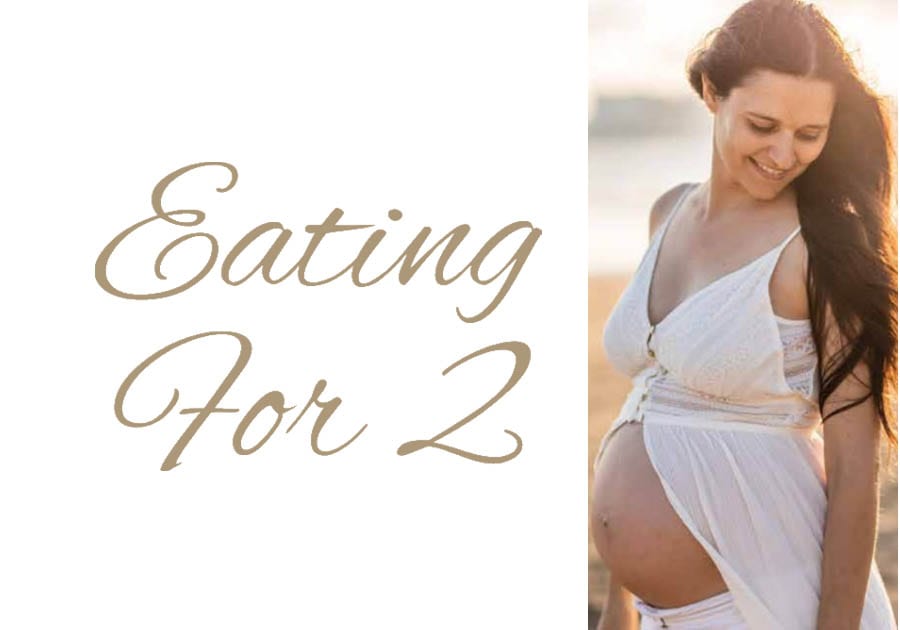IF YOU’RE PREGNANT, IT’S IMPORTANT TO ENJOY A WIDE VARIETY OF NUTRITIOUS FOODS EVERY DAY.
You should include foods from each of the following five food groups:
• Vegetables, including different types and colours, and legumes/beans
• Fruits & Grain (cereal) foods, mostly wholegrain, such as breads, cereals, rice, pasta, noodles, polenta, oats, quinoa and barley
• Lean meats and poultry, fish, eggs, tofu, nuts and seeds and legumes/ beans
• Milk, yoghurt, cheese and/or their alternatives, mostly reduced fat varieties.
AND DRINK PLENTY OF WATER.
Fish is also a good source of protein and many other nutrients including iron and zinc. Lean red meat and poultry are good sources of protein, iron and zinc. These nutrients are also provided by legumes, tofu, eggs, nuts, seeds and wholegrains. Although fish is healthy, you should restrict your intake of some types of fish when you’re pregnant (see below for more information). Milk, yoghurt and cheese products or their alternatives provide protein, calcium and other nutrients. It is also important for your baby’s development to get an adequate amount of iodine and folate for which you are likely to need to take iodine and folate supplements. An inadequate amount of iodine intake during pregnancy increases the risk of mental impairment and cretinism in the newborn baby. Check with your health professional about your supplement requirements.
FOODS TO LIMIT
Like other adult Australians, you should limit your intake of foods and drinks containing saturated fat, added salt and sugar.
• Limit intake of foods high in saturated fat such as many biscuits, cakes, pastries, pies, processed meats, commercial burgers, pizza, fried foods, potato chips, crisps and other savoury snacks.
• Replace high-fat foods that contain predominantly unhealthy saturated fats such as butter, cream, cooking margarine, coconut and palm oil with foods that contain predominantly healthy unsaturated fats (polyunsaturated and monounsaturated fats) such as olive and canola oils, spreads, nut butters/pastes and avocado.
• Limit intake of foods and drinks containing added salt.
• Do not add salt to foods in cooking or at the table.
• Limit intake of foods and drinks containing added sugar such as confectionary, sugar-sweetened soft drinks and cordials, fruit drinks, waters with added vitamins and energy and sports drinks.
FOODS TO AVOID
If you are pregnant, it is important not to eat:
• Soft cheeses, such as brie, camembert, ricotta, fetta and blue cheeses
• Uncooked seafood
• Processed meats – ham, devon, salami and other luncheon meats
• Bean sprouts
• Raw eggs
• Packaged or pre-prepared salads. These foods can contain listeria, an infection that may cause miscarriage. While you are pregnant, avoid eating foods containing raw eggs, such as mayonnaise, because of the risk of salmonella, which could be dangerous to the baby. During pregnancy, you should restrict your intake of some types of fish, as they may contain harmful levels of mercury. Pregnant women should limit themselves to eating:
• No more than one meal per fortnight of shark (also called flake), marlin, broadbill or swordfish, and no other fish that fortnight, or
• One meal per week of orange roughly (deep sea perch) or catfish and no other fish that week. The safest choice if you are pregnant is to avoid alcohol altogether.
